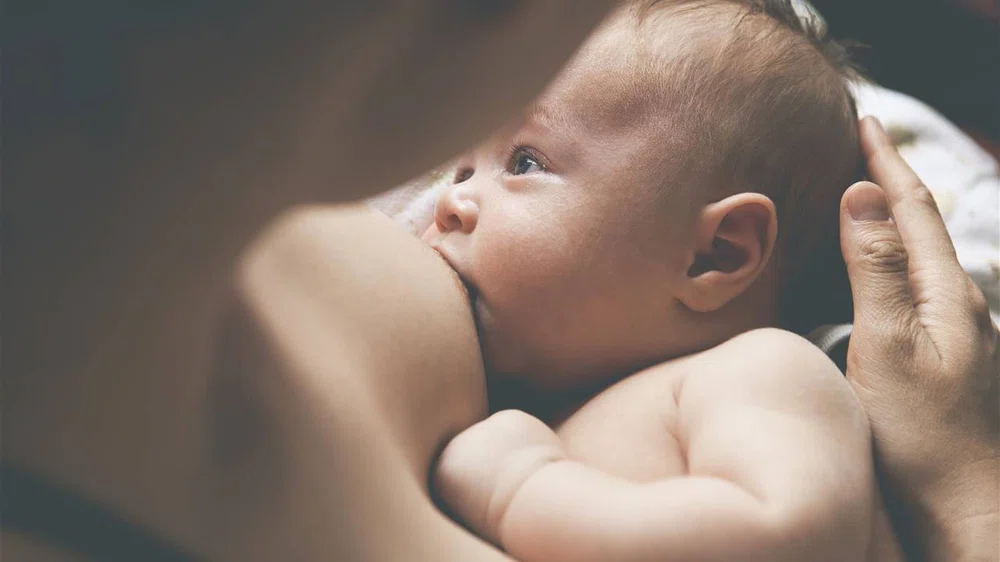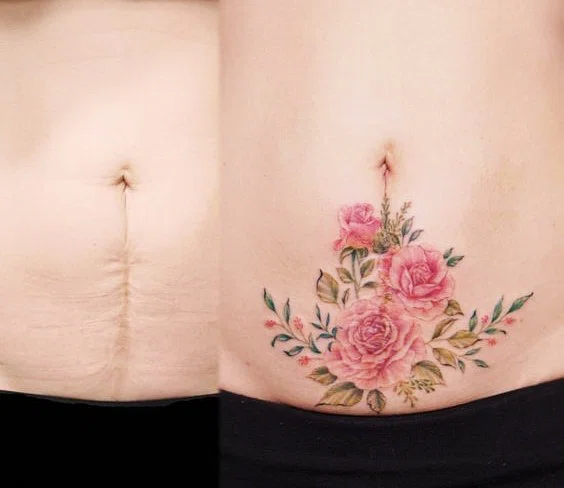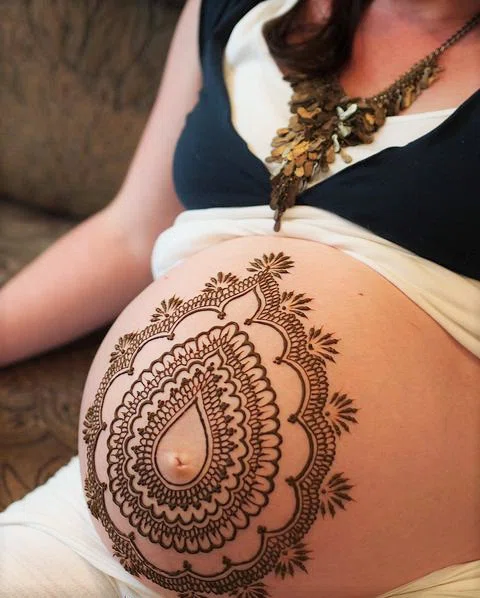Pregnancy can involve be the source of some complications when it comes to tattooing.
Some women want to get tattooed while pregnant so that the tattoo accompanies them in that process, but, are there any risks for pregnant women?
Learn more here.
Are inks bad for the foetus?
One of the myths that exist is that dyes can affect the development of the foetus, but this is not completely true. No matter if we use traditional inks with heavy metals or vegan inks that are less harmful, in any case they cannot reach the foetus, since they do not travel through the bloodstream.

Allergic reactions to certain inks may happen, and the subsequent anaphylactic shock or anaphylaxis, which would complicate the healing process.
Another complication could occur if you need to take corticosteroid medications in the event of an allergic reaction, which on some occasions it is not be the most recommended thing to do. You should always follow your doctor's instructions to the letter.
Can you get any disease?
The answer is yes. The risks of contracting diseases is always there, especially when the use of needles is involved.
This occurs when any of the elements is not sterilized, or the necessary hygiene standards are not met.
Nowadays, most tattoo artists take care of their clients and themselves by trying to clean well all the working areas. However, you have to be alert before coordinating with the tattoo artist to verify that everything is in good conditions. If you want to know more, you can learn more in our article about Unregulated tattoos.
Diseases like Hepatitis B, Hepatitis C, Syphilis or HIV can be transmitted.
That is why extreme care is essential if you finally decide to get a tattoo. In case of using a needle that is not properly sterilized, it could increase the chances of contagion for the mother and, therefore, also for the fetus.
For both the fetus in the gestation period and the mother, the chances of complications are very high. Therefore, it is better to give birth first before getting a tattoo or coordinate it with a reliable tattoo artist, but always keeping in mind that, even though the risks are minimized, they are always there.
In addition, as we mentioned before, allergies or skin infections may occur in the healing process.
In that case, the mother would be unprotected, and the body would be doubly exposed to complications. That is why many doctors recommend not getting tattooed while pregnant.
Especially in the first three months of pregnancy, since the fetus is in a very early stage of development and any alteration could even lead to miscarriages.
Do tattoos affect breastfeeding?

There are still no studies to determine 100% that inks travel through the lymph nodes, so it could be said that breastfeeding would not be a problem. However, when an infection occurs, breastfeeding is not recommended under any circumstances.
If extreme care measures are taken, there would be no risks in breastfeeding and the baby. However, tattooing the nipples or any surrounding areas is not recommended, since the baby could accidentally ingest some heavy or toxic materials from the inks.

Frequent Asked Questions:
- Do analgesic creams or sprays affect breastfeeding? In principle, external analgesics do not compromise breastfeeding, but it is not recommended to use them, since they alter the initial state of the skin and, as the body is so sensitive, it may not have the expected effects.
- Can you donate milk? Nope, Banks do not accept donations from recently tattooed people until 4 to 12 months later, as a precaution against illness or infection.
- In case of deciding to erase a tattoo, would this affect the milk? Yes, laser tattoo removal dissolves the ink into small particles that spread through the skin and could travel through the blood stream. So it is better to wait even after giving birth to remove a tattoo.
Are epidurals compatible with tattoos?
It is common to think that there are risks in case of having a lumbar tattoo. It is also logical to think that when the needle passes through the skin it could also "push" or drag the pigments of the tattoo into the nerves.
Howeverw, studies carried out by the Spanish Academy of Dermatology and Venerology partly refute this belief since a small percentage of ink may enter the central nervous system.
This is avoidable if a small incision is made where the needle should go through to avoid any contact with the ink.
This could alter the original appearance of the tattoo, so many may consider talking to their doctor beforehand to know if they need any aesthetic retouch.
How to take care of tattoos during pregnancy?
Pregnant women tend to have drier skin than normal and produce deeper stretch marks. The stretching of the skin and the changes that the body undergoes during pregnancy can also alter the tattoos and deforme them.
Therefore, if you already have tattoos, keep them constantly hydrated, not only by using creams, but also by drinking plenty of water and paying attention to your diet and vitamins. It is also very important to protect it form the sun and use sunscreen daily.
In case of having a tattoo in the abdomen area, of course, this will be modified in some way, although we cannot determine if after giving birth it will be deformed forever or if this is only temporary. The process depends 100% on each person and their body.
What about tattoos and cesarean sections?
If you have a tattoo in the lower abdomen and a cesarean section is necessary, it will be modified by the incision and subsequent stitches. This can modify the tattoo or worst case scenario, it may deform it.
Ask your doctor if plastic surgery would be necessary to get just a very fine scar after the wound heals.
It is important to remember that, in case you want to cover the scar with a new tattoo, you must wait at least 2 years to be able to puncture the skin again, since it is weakened and takes time to recover.

If you want to know more about this, you can read our article Tattoos to cover Scars where we’ll tell you everything about it :)
Get tattooed with henna?
Henna tattoos can be an option to calm the anxiety of getting a tattoo without major complications. They are not permanent, but some people choose this way to decorate their bodies.

Anything temporary allows you to change whenever you want and opt for different designs. Although there are two types of henna:
- The safe and natural henna that dyes the skin in brown or reddish colours only.
- Black henna which is not that safe, since it contains toxic elements that can damage the skin.
So, tattooing pregnant women, yes or no?
Although the risk percentages are generally low, many artists choose not to tattoo pregnant women even up to several months after giving birth. They prefer to avoid complications for both the pregnant woman and the fetus.
However, if you follow all the steps rigorously and consulting the doctor regularly, there shouldn’t be any serious problems whatsoever.
We always recommend getting information and if you have any questions, consult in a health center. Remember that prevention is always better than cure.
As you can see, the world of tattooing is full of myths. And it's up to you to be well-informed to advise your clients.
Do you have more questions to resolve? Within our professional tattoo courses, we guide you step by step not only in the technical aspects but also in the methodological and practical ones.